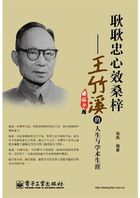A Great Transaction in Land The people of the young Republic of the United States were greatly astonished, in the summer of 1803, to learn that Napoleon Bonaparte, then First Consul of France, had sold to us the vast tract of land known as the country of Louisiana. The details of this purchase were arranged in Paris (on the part of the United States) by Robert R. Livingston and James Monroe. The French government was represented by Barbe-Marbois, Minister of the Public Treasury.
The price to be paid for this vast domain was fifteen million dollars.
The area of the country ceded was reckoned to be more than one million square miles, greater than the total area of the United States, as the Republic then existed. Roughly described, the territory comprised all that part of the continent west of the Mississippi River, bounded on the north by the British possessions and on the west and south by dominions of Spain. This included the region in which now lie the States of Louisiana, Arkansas, Missouri, Kansas, parts of Colorado, Minnesota, the States of Iowa, Nebraska, South Dakota, North Dakota, Wyoming, a part of Idaho, all of Montana and Territory of Oklahoma. At that time, the entire population of the region, exclusive of the Indian tribes that roamed over its trackless spaces, was barely ninety thousand persons, of whom forty thousand were negro slaves.
The civilized inhabitants were principally French, or descendants of French, with a few Spanish, Germans, English, and Americans.
The purchase of this tremendous slice of territory could not be complete without an approval of the bargain by the United States Senate. Great opposition to this was immediately excited by people in various parts of the Union, especially in New England, where there was a very bitter feeling against the prime mover in this business,--Thomas Jefferson, then President of the United States. The scheme was ridiculed by persons who insisted that the region was not only wild and unexplored, but uninhabitable and worthless.
They derided "The Jefferson Purchase," as they called it, as a useless piece of extravagance and folly; and, in addition to its being a foolish bargain, it was urged that President Jefferson had no right, under the constitution of the United States, to add any territory to the area of the Republic.
Nevertheless, a majority of the people were in favor of the purchase, and the bargain was duly approved by the United States Senate; that body, July 31, 1803, just three months after the execution of the treaty of cession, formally ratified the important agreement between the two governments.
The dominion of the United States was now extended across the entire continent of North America, reaching from the Atlantic to the Pacific. The Territory of Oregon was already ours.
This momentous transfer took place one hundred years ago, when almost nothing was known of the region so summarily handed from the government of France to the government of the American Republic. Few white men had ever traversed those trackless plains, or scaled the frowning ranges of mountains that barred the way across the continent.
There were living in the fastnesses of the mysterious interior of the Louisiana Purchase many tribes of Indians who had never looked in the face of the white man.
Nor was the Pacific shore of the country any better known to civilized man than was the region lying between that coast and the Big Muddy, or Missouri River. Spanish voyagers, in 1602, had sailed as far north as the harbors of San Diego and Monterey, in what is now California; and other explorers, of the same nationality, in 1775, extended their discoveries as far north as the fifty-eighth degree of latitude.
Famous Captain Cook, the great navigator of the Pacific seas, in 1778, reached and entered Nootka Sound, and, leaving numerous harbors and bays unexplored, he pressed on and visited the shores of Alaska, then called Unalaska, and traced the coast as far north as Icy Cape. Cold weather drove him westward across the Pacific, and he spent the next winter at Owyhee, where, in February of the following year, he was killed by the natives.















